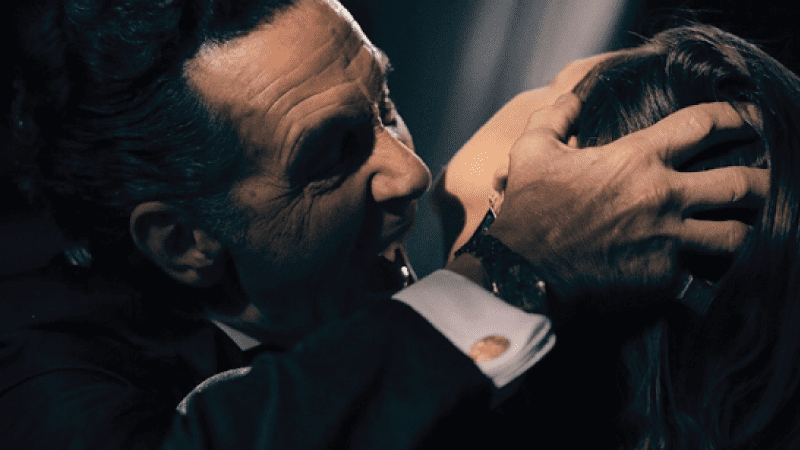Climate of the Hunter
Climate of the Hunter, 2020, ½ star
Climate change
Exclusive to MeierMovies, August 17, 2020
Mickey Reece is out there, both aesthetically and geographically.
The writer-director is known for his combination of unusual themes and minimalist, low-budget style often characterized as “people talking in rooms.” And he makes his films in a place not many associate with the movie industry: Oklahoma. While all this makes Reece unique, with apologies to Rodgers and Hammerstein, this doesn’t necessarily make him OK.
His latest offering, Climate of the Hunter, probably won’t be a huge surprise to Reece’s fans, but it might be a tough pill for mainstream audiences. Of course, that’s assuming those audiences see it, which is unlikely. Instead, Climate, hampered by COVID-19, as are all current films, has played just a few events, including last year’s Fantastic Fest and the recent Florida Film Festival.
At the latter, the movie was met with a mix of enthusiasm, curiosity, agape jaws and abject boredom. That’s likely because the film lacks a strong story. And that’s no accident, according to Reece, who told the festival audience (via a virtual Q&A) that his script, which was co-written by John Selvidge, flowed from the set and the actors. Though he had almost no budget, Reece did have access to some atmospheric, rustic cabins and an actor (Ben Hall) who is a good fit for a 1970s-style, campy horror. So, as it is for many unfunded, independent filmmakers, circumstance was apparently the mother of invention.
Hall plays Wesley, a man who might be a vampire. Life is tough for the potentially undead, especially when you’ve just committed your wife to a mental institution. So to get away from it all, he decides to revisit his family’s cabin in the woods, where he becomes reacquainted with two sisters (Ginger Gilmartin and Mary Buss) who reside next door. Then Wesley’s son (Sheridan McMichael) and one of the sister’s daughter (Danielle Evon Ploegeragainst) show up. Then the group eats dinner. And they talk. And we meet another dude (Jacob Ryan Snovel, who played Elvis in Mickey Reece’s Alien) who lives nearby and likes to smoke pot.
This is where a film critic is supposed to offer insightful commentary exposing the soul of a film. Honestly, I’ve got nothing. Sorry, Mickey. But, hey, if the filmmaker admits he didn’t exactly have a burning desire to tell this particular story, I guess I shouldn’t try too hard either. I’ll simply quote Frank Barone from Everybody Loves Raymond: “Have an idea out there.”
Perhaps the film is hindered by the fact that Reece didn’t make it weird enough. Indeed, one audience member at the Q&A asked him why he didn’t go full crazy. (That – and more naturalistic pacing – would have at least boosted the entertainment factor.) Reece implied that he wanted to balance the strangeness with some degree of conventionality. But by doing so, he ruins his chance to cleverly subvert the genre and instead delivers a tonal train wreck. Put more crudely, Climate resembles a community-theatre production of Who’s Afraid of Virginia Woolf? Or a cross between the original Dark Shadows and a Neil Breen film.
Cinematographer Samuel Calvin, who also participated in the festival Q&A, is somewhat successful at capturing the period vibe with a 1.37:1 aspect ratio, stylistic zooms and retro camera lenses. And, admittedly, a small part of me would like to see what Reece could do with a bigger budget and better actors. But a bigger part of me is simply glad I survived the screening.
© 2020 MeierMovies, LLC
